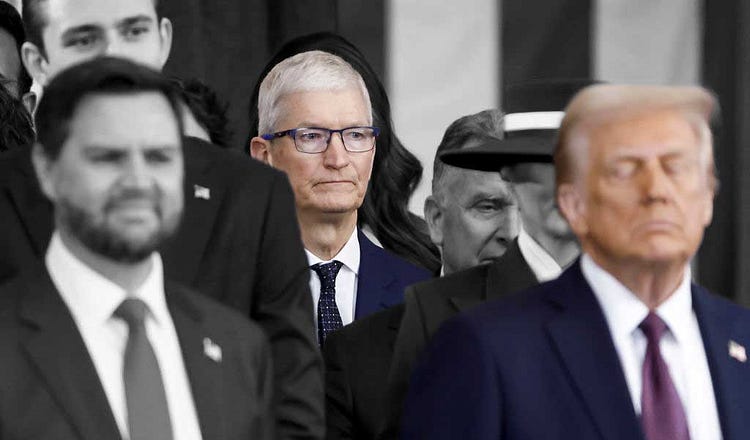How Trump’s Tariff Threat Made Apple Jump

Apple CEO Tim Cook stands behind President Donald Trump on Inauguration Day. (Shawn Thew-Pool via Getty Images; edited by The Free Press)
The tech giant will invest $500 billion in the U.S. Will other companies follow?
75
“The tariffs are amazing,” said President Donald Trump last Friday. “It’s my favorite word in the dictionary, the word tariff. It’s such a beautiful word.”
The president was speaking to state governors who were in D.C. for the National Governors Association meeting, and he was bragging that he had met with Apple’s CEO Tim Cook earlier in the week, who had told him that Apple was going to be investing “hundreds of billions of dollars” in the U.S. instead of abroad—because of the threat of tariffs.
Suddenly, Trump paused. “I hope he announced it,” he said, realizing that perhaps he had jumped the gun.
Continue Reading The Free Press
To support our journalism, and unlock all of our investigative stories and provocative commentary about the world as it actually is, subscribe below.
$8.33/month
Billed as $100 yearly
$10/month
Billed as $10 monthly
Already have an account?
Sign In


